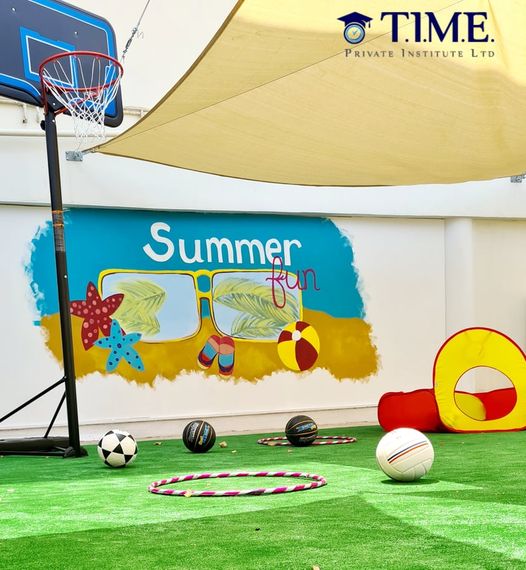
Why should every child learn to play a Musical Insrument?
10 REASONS EVERY CHILD SHOULD PLAY A MUSICAL INSTRUMENT
Music is believed to be the food for the soul. Learning to play a musical instrument from an early age is helpful for children in many ways. It enhances their overall confidence and makes them learn dedication and patience. However, children cannot absorb these benefits by sitting in music classes and nodding along. Kids have to engage with music actively in order to enjoy the real perks.
Here are 10 reasons why you should encourage your little drum-bashing rock star to play music every day.
IMPROVES MEMORY
“Further research has shown that participation in music at an early age can improve children’s learning ability and memory by stimulating different patterns of brain development,” says Maestro Eduardo Marturet, a composer, conductor and musical director for the Miami Symphony Orchestra. Learning an instrument teaches children how to create, store and retrieve memories more efficiently.
STIMULATES CREATIVITY
Practicing music is a creative pursuit. Learning to play an instrument does wonders to the creative side of a child’s brain. No matter how much the music teacher annotates a composition, they cannot fully express how a piece of music should be played. So, it’s upon the learner to put their own stamp on a piece. Every time your children hold their instrument to practice something they will have to inject a part of their personality into it. This gives kids a healthy and composed way to channelize their inner creativity.
TEACHES PATIENCE
Patience is the highest virtue of living a contented life. Playing a musical instrument means having to preserve through hours, days, and possibly years of practice. It helps children learn for one fact that the more effort you put into something, better the results will be. Besides, music lessons also make children understand how to set goals. They will be able to set short term and long term goals for learning a specific note and a new song with lots of different notes respectively.
Εvery time your child holds their instrument to practice something they will have to inject a part of their personality into it. This gives children a healthy and composed way to channelize their inner creativity
INCREASES DISCIPLINE AND TIME MANAGEMENT SKILLS
Unless you’re an out-of-this-world child prodigy, learning to play an instrument is nowhere a skill you can master overnight. Learning music takes time and effort; devoting time to practice outside of the lessons will help children organize their daily tasks. This prevails discipline in your kid’s daily routine.
“Exposing kids to musical instruments is the real key. They are curious in nature and excited about them – and the discipline that parents AND kids learn by sticking with them is a lesson in itself,” says Mira Stulberg-Halpert of 3D Learner Inc., who works with children suffering from ADHD.
ENHANCES COORDINATION
Playing an instrument means the brain has to work swiftly and efficiently. On their guitar lessons or any other instrument, kids have to concentrate on reading music and converting the notes into the physical motion of playing. As a result, they can significantly improve their hand-eye coordination. The trombone makes a good example here — instead of keys or strings, a trombone’s slide tube has to be moved to the right position at the right time in order to achieve the correct note.
BOOSTS CONFIDENCE
Playing an instrument helps your child get comfortable with self-expression. As children begin to master their instrument, they will probably someday play in front of a few audiences, starting with their music teacher or parents, and branching out to groups of other pupils and concert audiences. Playing in public can help children feel confident in performing their skills in a non-academic context.
IMPROVES LISTENING SKILLS
Playing an instrument requires learners to listen carefully to an array of different things. Not only do they need to listen to instructions from their teacher, but they also need to pay attention to rhythm, pitch, speed, texture, and other minor details. This overall improves their listening ability. Moreover, it also helps them in increasing their concentration level and overall attention span.
During their lessons, kids have to concentrate on reading music and converting the notes into the physical motion of playing. As a result, they can significantly improve their hand-eye coordination
INTRODUCES NEW CULTURES AND HISTORY
Music is a reflection of the culture/era it was composed in. An era’s music highly speaks of its historic events and lifestyle of generations. Introducing a child to multiple types of music (e.g. classical, contemporary, rock, jazz, blues, folk, medieval, etc.) will allow them to have a glimpse into the past. As a music school, we always educate our students on when the piece was written and the circumstances surrounding the composition. We encourage them to create a story to tell while they play. This sometimes bugs curiosity among children to go and research the era/culture being portrayed in the piece.
IMPROVES SOCIAL SKILLS
Playing an instrument isn’t only good for your child’s brain, it’s also great for expanding his social circle. Joining a musical group at an early age encourages you to develop relationships with other kids from different backgrounds. It also builds leadership and team-building skills, as well as encourages your little rock star to understand the importance of teamwork. Moreover, it teaches them to be kind and considerate towards their group fellows.
“Socially, children who get involved in a musical group or ensemble learn important life skills, such as how to relate to others, how to work as a team and appreciate the loots that come from working together, and the development of leadership skills and patience,” says Marturet, who also oversees the MISO Young Artist program in South Florida.
PROVOKES SMARTNESS
“Life without playing music is inconceivable to me. I live my daydreams in music. I see my life in terms of music… I get most joy in life out of music” – Albert Einstein
And as it turns out, Einstein’s IQ was exceptional. Many studies show a connection between musical training and academic success, in both children and adults. Learning to play an instrument stimulates the brain cells, improving functions like memory and abstract reasoning skills, which are essential for math and science.
Music, in general, helps bring balance and harmony in one’s life. Children who learn to play an instrument have an outlet for creativity and their emotions. This is something that induces self-expression in kids.
Take your kid to piano lessons or whatever type of instrument he’s intrigued with and notice the change in his development and personality/behavior!
For more information, please click here







